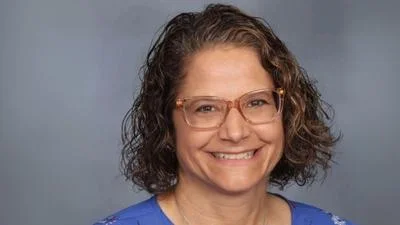City of Princeton issued the following announcement on Feb. 20.
State, county and city leaders gathered Friday afternoon at the Plantation Grill for a state of the state, county and state luncheon event, hosted by the Princeton Chamber of Commerce.
Mayor Joel Quiram gave an update on the city of Princeton, Bureau County Board Chairwoman Marshann Entwhistle and Vice Chairman Keith Cain spoke on behalf of the county, and state Sen. Chuck Weaver talked about statewide legislation.
City of Princeton
The state of the city has never been better, according to Quiram.
He touched on many accomplishments the city has made over the past few years. For one, the city’s finances have improved.
Quiram said when City Manager Rachel Skaggs was hired, he asked her to review the city’s finances in light of the financial trouble in Dixon. During her review, she determined the city’s accounting practices made it difficult to follow the flow of funds.
Skaggs was instrumental in implementing a new system where all funds are now accounted for and easier to follow.
Under Skaggs’ management, the city has also reduced spending in a number of ways — from reducing employee positions to switching insurance companies to implementing a new phone system. Quiram said the city has been able to cut its spending budget by thousands of dollars.
Quiram reported the city’s long-term debt is down from $42 million to $28 million.
The focus of the downtown businesses in Princeton has shifted to center on tourism. The new businesses, chamber events and airing commercials in the Quad Cities has boosted foot traffic to the uptown and downtown businesses over the past few years, according to Quiram. Going forward, the city plans to air more commercials in the Peoria market and the southwest suburbs of Chicago.
Quiram also touched on challenges for the city, such as funding fire and police pensions. Currently, the city’s fire pensions are funded at 62 percent and police pensions at 74 percent.
“We, as a municipality, our taxpayers, you and me, are mandated to fund them. We’d like to be funded at 100 percent, but the cost of being so prohibits it,” he said.
Skaggs is currently working on a long-term plan with City Treasurer Bob Davidson to ensure pensions are fully funded by 2040, which is mandated by the state.
Quiram also touched on the city’s poor infrastructure, which causes myriad flooding issues. He said the infrastructure is the reason why the city is focusing hard on paying down its debt.
“We need our debt level in the area that is manageable for a town our size; in the $10 to $15 million range, so we can effectively address these ongoing concerns,” he said.
Bureau County
At the county level, the big project currently being tackled is the new law enforcement center.
Entwhistle gave a brief update about project, which involves turning the former Bureau County Republican building on Ace Road into a facility that will house the sheriff’s office and jail, coroner’s office and 911 center.
The county board has approved the architectural plans for the project and also approved Bernardi Securities as the bond company who will help with the sale of the $12 million in bonds needed to transform the facility.
Once the new jail is built and ready to house inmates, Bureau County will be able to end its contract services with LaSalle County for housing inmates. Because of inadequate space at the current jail, some inmates (mostly female) are being housed in LaSalle County at a cost of roughly $6,000 to $7,000 a month, which the county is responsible for paying.
A challenge the county is currently facing is an employee shortage in various departments.
Cain said 30 years ago, it was an honor to work for the county, but today it’s not that way.
“We’re going through the same situation that each one of you with a business or someone in charge of something — it’s hard to find an employee,” Cain said. “Fifteen dollars an hour is not going to be the answer to this problem across the state, as far as I’m concerned.”
Cain said the county is trying to raise the working wage, but added that he doesn’t know if that’s the right answer.
“We’ve got to get (the people) off welfare and get them back to work,” he said.
State of Illinois
Raising the minimum wage to $15 an hour is a done deal, according to state Sen. Chuck Weaver.
The dynamics behind the passage of that bill is that there were no negotiations between the two parties before new Gov. J.B. Pritzker made it certain he’d be signing the bill.
Weaver said Republicans begged for a different minimum wage scale downstate, as a way to separate Chicago from the rest of the state, but no negotiations were to be had with Democrats having the supermajority in the House and Senate.
Weaver said the minimum wage increase is going to hurt the people it’s designed to help, because it will either replace jobs with robots or force businesses to move across state lines.
“I’m disappointed with the governor on that one,” he said.
Weaver also touched on the legalization of recreational marijuana, which is also on Pritzker’s agenda.
“This is something that could have a very negative impact on our society,” he said.
Weaver said he found it discouraging when he tried to get social service agencies to forward and help spread that message, only to find found they had concerns about speaking out knowing their funding comes from the state.
Weaver offered a few facts that back up his opposition to legalization, one being that there is data that shows the younger a person is who is exposed to the drug, the more likely they will have problems in the future.
Original source can be found here.

Source: City of Princeton




 Alerts Sign-up
Alerts Sign-up